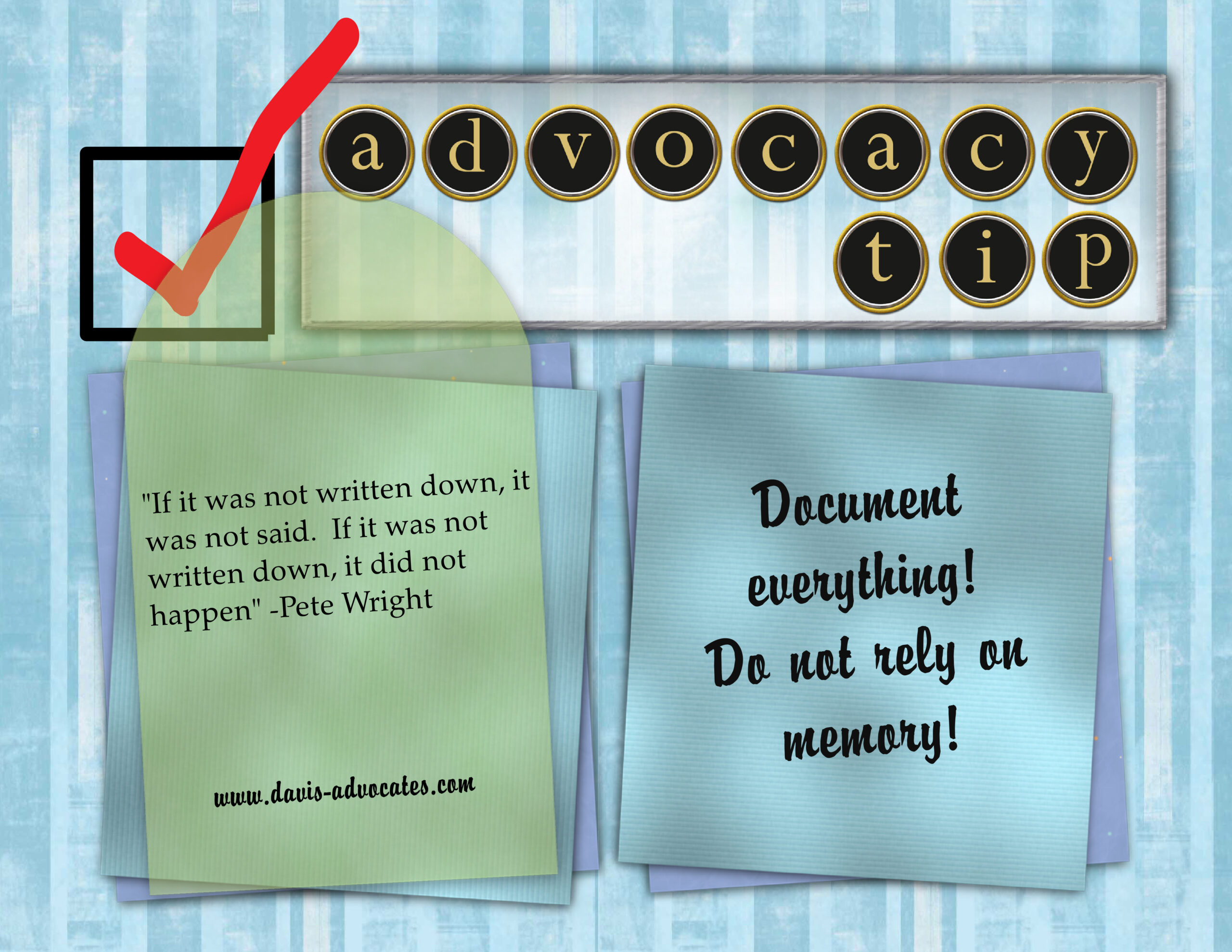Conclusion of Record Keeping Series:
In today’s post, we will be concluding our series on record keeping by discussing problem-reporting worksheets and requesting data and work samples. Let’s start with problem-reporting worksheets.
Problem Reporting Worksheets:
Have you been keeping track of all the times your child’s school has contacted you to report an incident or behavior? If not, it may be helpful to use a Problem Report Worksheet. Fill out this worksheet each time someone from your child’s school contacts you, sends a note home, or your child receives a referral. You may start to notice patterns, such as an increase in a behavior or the emergence of a new one. If you see a significant increase in behavior over two weeks, it may be time to request either a parent-teacher conference or an ARD meeting. This could indicate that your child’s program or placement is not working and may need to be changed. It could be a simple solution, such as your child’s teacher using a new strategy, or it may require a change in your child’s IEP.
Requesting Data and Work Samples:
Now let’s move on to requesting data and work samples. This is the last of the four main record-keeping activities, and it can help determine whether your child is making progress towards their IEP goals.
As a parent, you have the right to request and receive the data and work samples collected to determine your child’s progress. First, take a look at your child’s IEP goals and note the reporting period for reporting progress on IEP goals. This is usually the same time that report cards are issued. Next, calendar no less than five business days before each reporting period to remind yourself to send a letter or email to your child’s case manager or the ARD facilitator requesting the data on progress for all goals (including behavior goals) for the reporting period, including computer-generated data and work samples.
There are several reasons why it’s important to request data for each reporting period:
- The data and work samples may get destroyed before the next ARD meeting;
- You can track baseline data and progress towards the performance level your child is expected to be at by the end of the IEP year;
- You can determine if any modifications and supports need to be changed before the annual ARD meeting; and
- This data can help develop new IEP goals and determine the need for Extended School Year Services (ESY).
If you don’t understand the codes that are used on the progress report and/or the data, ask that you be provided with a key.
If you have been unable to get your questions answered by the teacher or the case manager, or if you feel your child is not making progress, you can request in writing for an ARD meeting to be scheduled.
Upcoming Posts:
In an upcoming post, I will discuss in more detail IEP goal progress monitoring and data collection.
If you need assistance with the problem-reporting worksheet, requesting an ARD meeting, data collection, or interpreting the data, please contact me today!



